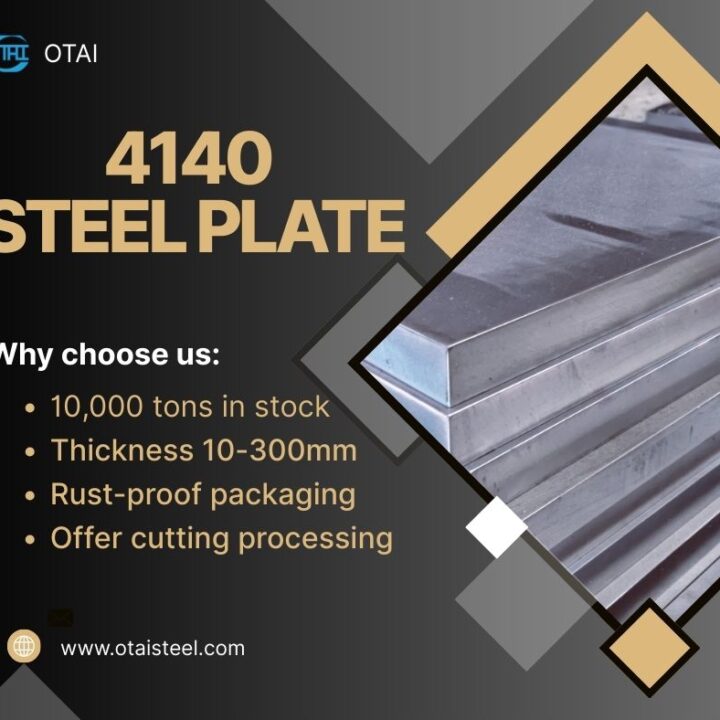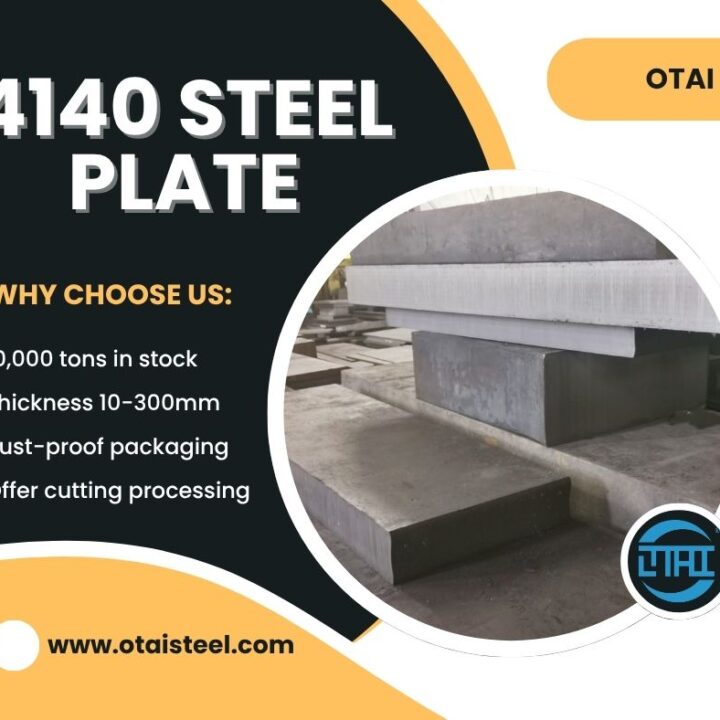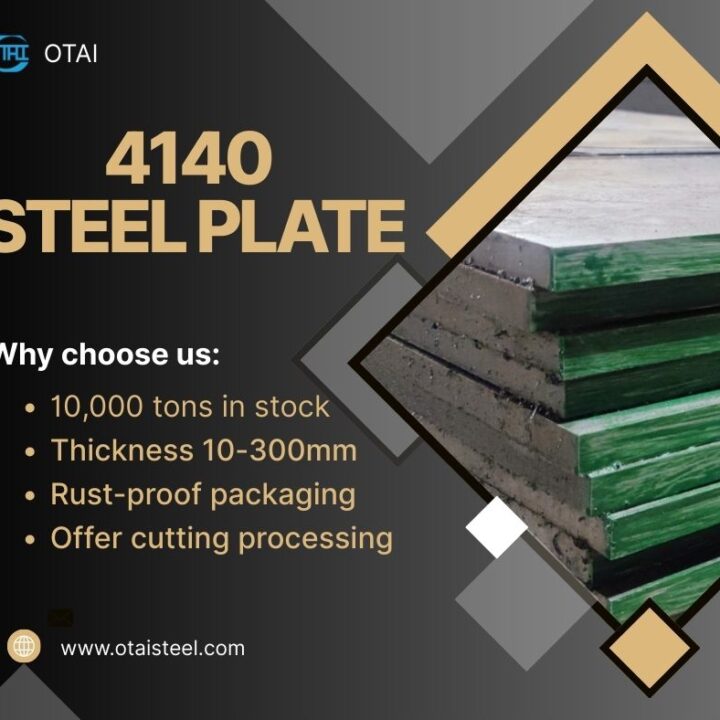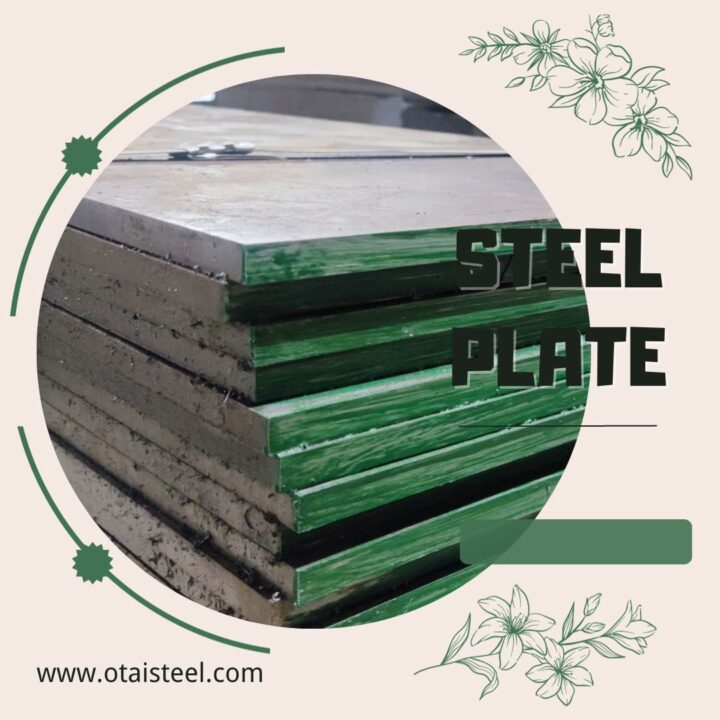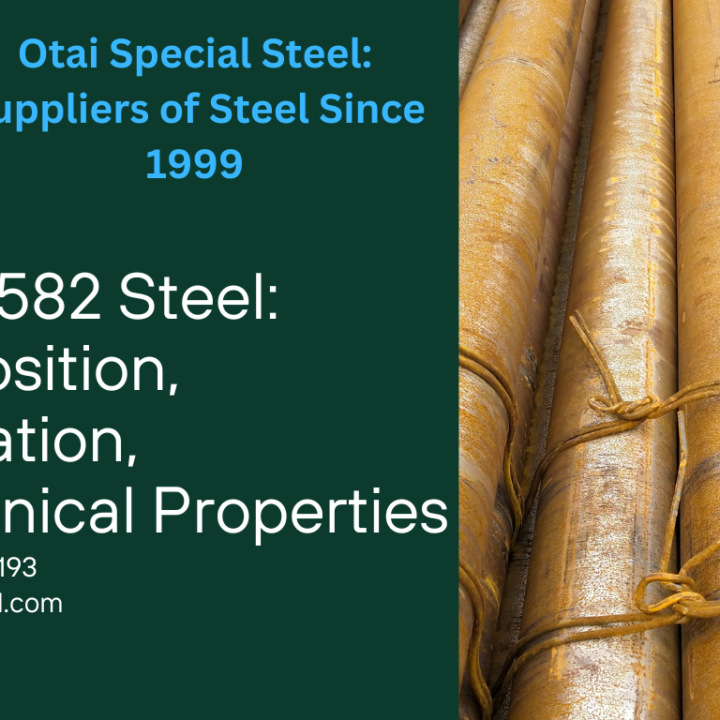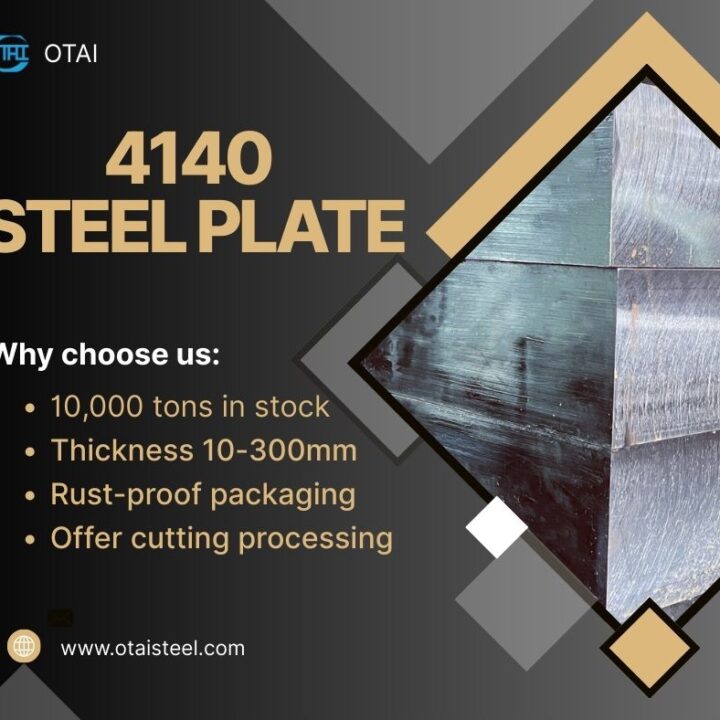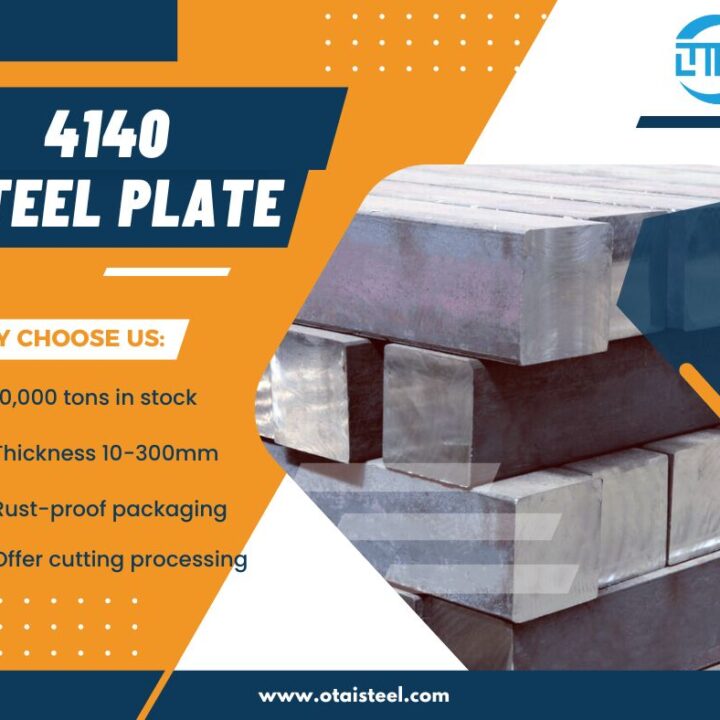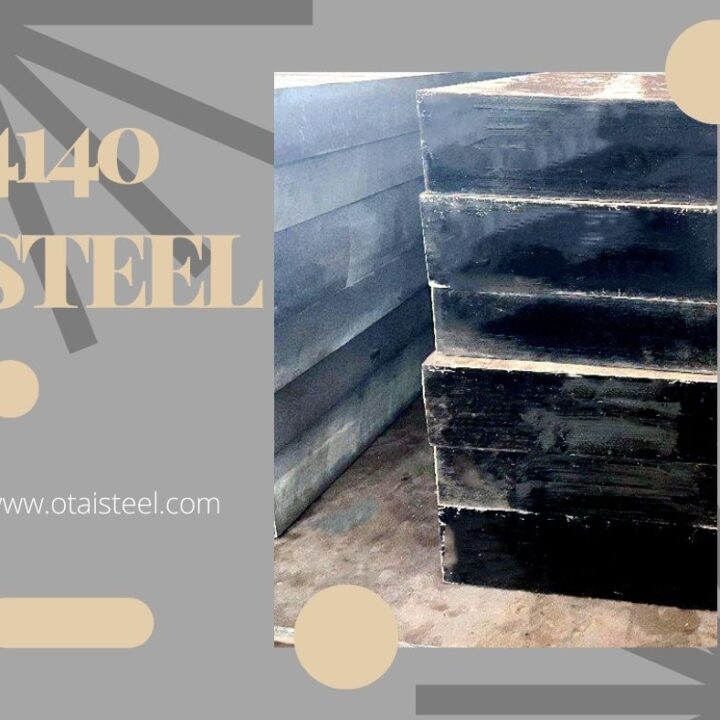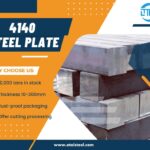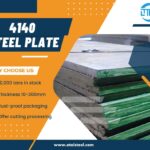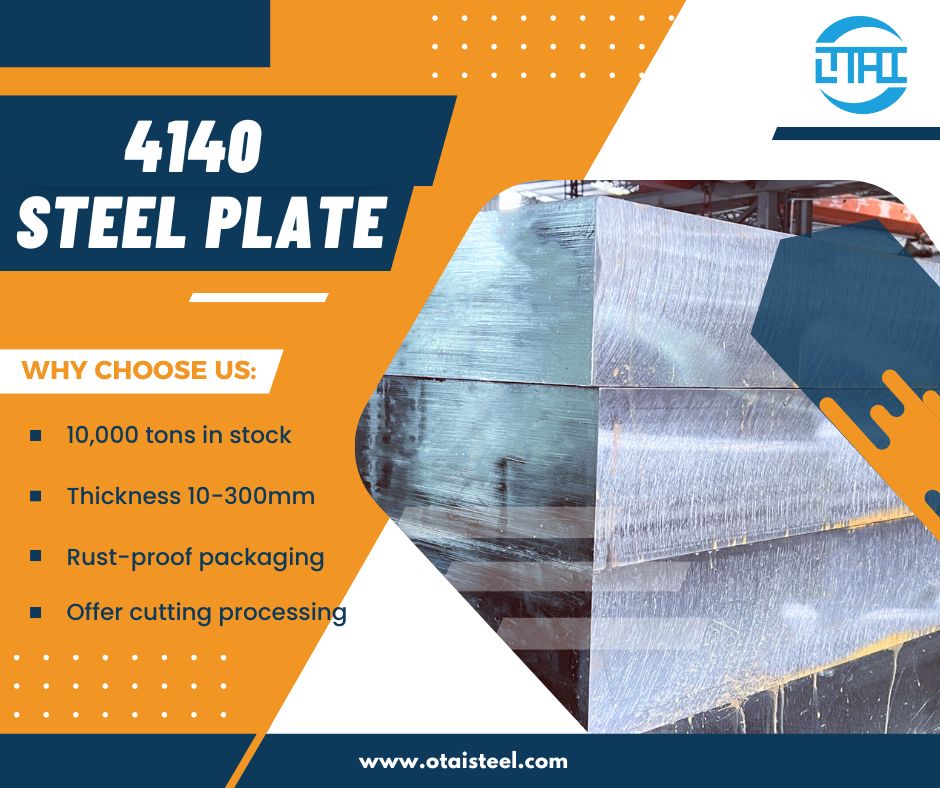 4140 steel mechanical properties |Unlocking the True Strength Behind This Alloy
4140 steel mechanical properties |Unlocking the True Strength Behind This Alloy
When it comes to tough and versatile steels, 4140 steel is often the first name on every engineer’s shortlist. Whether you’re building machine parts, automotive components, or high-stress tools, this alloy consistently delivers strength, toughness, and reliability. But what exactly are the mechanical properties of AISI 4140, and how do they impact its real-world performance?
Let’s take a deep dive into the numbers, behavior, and benefits of this outstanding alloy! 🔍
🔧 What Is 4140 Steel?
4140 steel is a chromium-molybdenum alloy steel known for its excellent strength, hardenability, and fatigue resistance. It’s categorized under AISI (American Iron and Steel Institute) standards and widely used in applications where high tensile strength and impact toughness are critical.
This material can be delivered in a variety of conditions, including annealed, normalized, quenched and tempered, or even pre-hardened. Each heat treatment will affect the mechanical performance of AISI 4140, which is why understanding these properties is so important.
📊 Key Mechanical Properties of 4140 Steel
Here’s a breakdown of some of the most critical mechanical properties:
| Property | Value Range (Typical, Heat Treated) |
|---|---|
| Tensile Strength | 850 – 1000 MPa (can go up to 1600 MPa) |
| Yield Strength of 4140 Steel | 655 – 895 MPa |
| Elongation Percentage | 16 – 25% |
| Modulus of Elasticity of 4140 Steel | 205 – 210 GPa |
| Impact Toughness | High (especially when tempered properly) |
| 4140 Steel Fatigue Strength | Around 400 – 600 MPa |
| Hardness (HRC) | 28 – 45 HRC (depending on heat treatment) |
These values are typical for mechanical properties of quenched and tempered 4140 steel, which is the most common condition for industrial use.
🔩 What Do These Numbers Mean in Practice?
🧱 Tensile and Yield Strength
4140 steel tensile strength is one of its standout qualities. This means it can withstand a significant pulling force before breaking. Its yield strength is also impressive, ensuring it holds up well under repeated loading—ideal for shafts, axles, and high-load components.
🧊 Impact Toughness
One of the defining benefits of 4140 is its impact toughness. It performs well even at sub-zero temperatures, which is critical in construction and oil & gas sectors.
🔄 Fatigue Resistance
The 4140 steel fatigue strength gives it a long life under cyclic loading. This makes it a go-to choice for crankshafts, spindles, and other parts that experience continuous rotation and vibration.
⚙️ Influence of Heat Treatment
Heat treatment has a dramatic impact on mechanical performance. The most commonly used process is quenching and tempering, which boosts strength and hardness while preserving toughness. For example:
-
4140 steel hardness Rockwell C can reach up to 45 HRC after quenching and tempering.
-
Annealed condition? Expect lower hardness (~20 HRC) and higher machinability.
-
Pre-hardened 4140 is often supplied with 28–32 HRC, ready for use without post-treatment.
Knowing the mechanical condition is key to getting the right performance from AISI 4140.
🆚 4140 vs 4340 Mechanical Properties
While both steels are alloyed for strength, 4340 contains nickel, giving it better toughness at the same hardness levels. However, 4140 steel vs 4340 mechanical properties shows that 4140 is more cost-effective and easier to source, with slightly lower notch toughness. If you need ultra-high impact resistance, go with 4340. For most industrial purposes, 4140 is more than enough.
🏭 Real-World Applications of 4140 Mechanical Properties
You’ll find 4140 steel powering many industries:
-
🚜 Agricultural Equipment: Gears, levers, and axle parts
-
🏗 Construction: Tool joints, connecting rods, and structural shafts
-
🛠 Tool & Die: Punches, forming dies, and mandrels
-
🚙 Automotive: Crankshafts, tie rods, and drive shafts
-
🛢 Oil & Gas: Drill collars, rotary shafts, and valve parts
Each of these uses takes full advantage of the 4140 steel mechanical properties like fatigue resistance and high yield strength.
🏆 Why choose Otai Special Steel?
As a leading alloy steel supplier in China, Otai Special Steel offers you the following advantages:
- More than 10,000 tons of spot inventory, covering specifications from 6mm to 300mm
- Provide a full range of heat treatment services such as annealing, quenching and tempering, quenching and tempering
- Customized cutting, packaging and export packaging on demand
- Each shipment comes with UT flaw detection, chemical composition report and third-party testing (such as SGS)
- International customers include well-known companies such as Thyssenkrupp, Borealis, Schlumberger
Whether you are an end user or a trading company, we can provide you with high-quality, cost-effective and stable supply of 4140 steel plates and bars. Contact us now to get a quote!
❓ FAQ: Common questions you may want to know
Q1: Can 4140 steel be used to manufacture pressure vessels?
A1: It can be used under certain conditions, but it needs to be confirmed that it complies with ASME specifications.
Q2: Can quenched and tempered 4140 be machined directly?
A2: Yes, but it will be more difficult to machine than annealed state. It is recommended to use carbide tools and reasonable cutting parameters.
Q3: What standards apply to the mechanical properties of 4140?
A3: Including ASTM A29, ASTM A322, SAE J404, etc.
Q4: Are 4140 and EN19 the same?
A4: Yes, EN19 is the European equivalent of 4140 steel, and the performance of the two is almost the same.
Looking for high-quality 4140 alloy steel plates or bars? Welcome to contact us at Aotai Special Steel for quick quotes and technical support📩!
